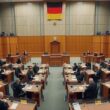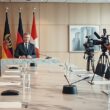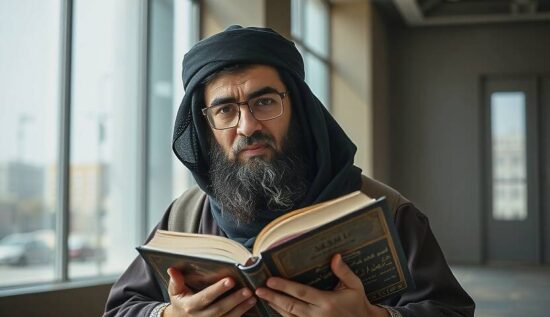Title: The Double Standard of the West in Dealing with Islamists
The political West has a peculiar way of dealing with Islamists. While it condemned the Islamic State (ISIS) and its affiliates, it is now embracing the same ideology in a different form. The recent developments in Syria, where the Hayat Tahrir al-Sham (HTS) has taken control, have put the West in a precarious position.
The West has long been critical of the HTS, labeling it as an Islamist group with a history of violence and extremism. However, with the group’s leader, Ahmad al-Sharaa, now in power, the narrative has shifted. The West is now engaging with him, and the media is portraying him in a more positive light.
The double standard is evident in the way the West treats different Islamist groups. While the Uighur Islamists in China are condemned and suppressed, the HTS in Syria is being given a chance to reform and be part of the political process. The West’s sudden change of heart is a result of the HTS’s success in defeating the Syrian government, led by Bashar al-Assad, and the group’s ability to provide stability in the region.
The West’s newfound willingness to engage with the HTS raises questions about the nature of the group and its ideology. Is it a terrorist organization, or is it a legitimate political force? The answer depends on the context and the interests of the parties involved.
The HTS’s leader, al-Sharaa, has undergone a transformation from a radical Islamist to a pragmatic politician. He has renounced violence and is now focused on rebuilding the country and providing for its people. The West is willing to give him a chance, but the same cannot be said for other Islamist groups, such as the Taliban, who are still viewed with suspicion and hostility.
The double standard is not limited to the West’s treatment of Islamist groups. The media is also playing a role in shaping public opinion, and the narrative is shifting to accommodate the new reality in Syria. The Frankfurter Allgemeine Zeitung, a German newspaper, has reported on the HTS in a more positive light, portraying the group as a legitimate political force and its leader as a pragmatic politician.
The West’s newfound engagement with the HTS is a result of a change in the political landscape in Syria. The group’s success in defeating the Syrian government and its ability to provide stability in the region have made it an attractive partner for the West. The HTS’s leader, al-Sharaa, is now seen as a legitimate political player, and the group is being given a chance to be part of the political process.
The double standard of the West in dealing with Islamists is a complex issue, and it raises questions about the nature of the West’s engagement with the region and its interests. The West’s willingness to engage with the HTS is a sign of the changing political landscape in the region, and it is a reflection of the West’s desire to maintain its influence in the region.





